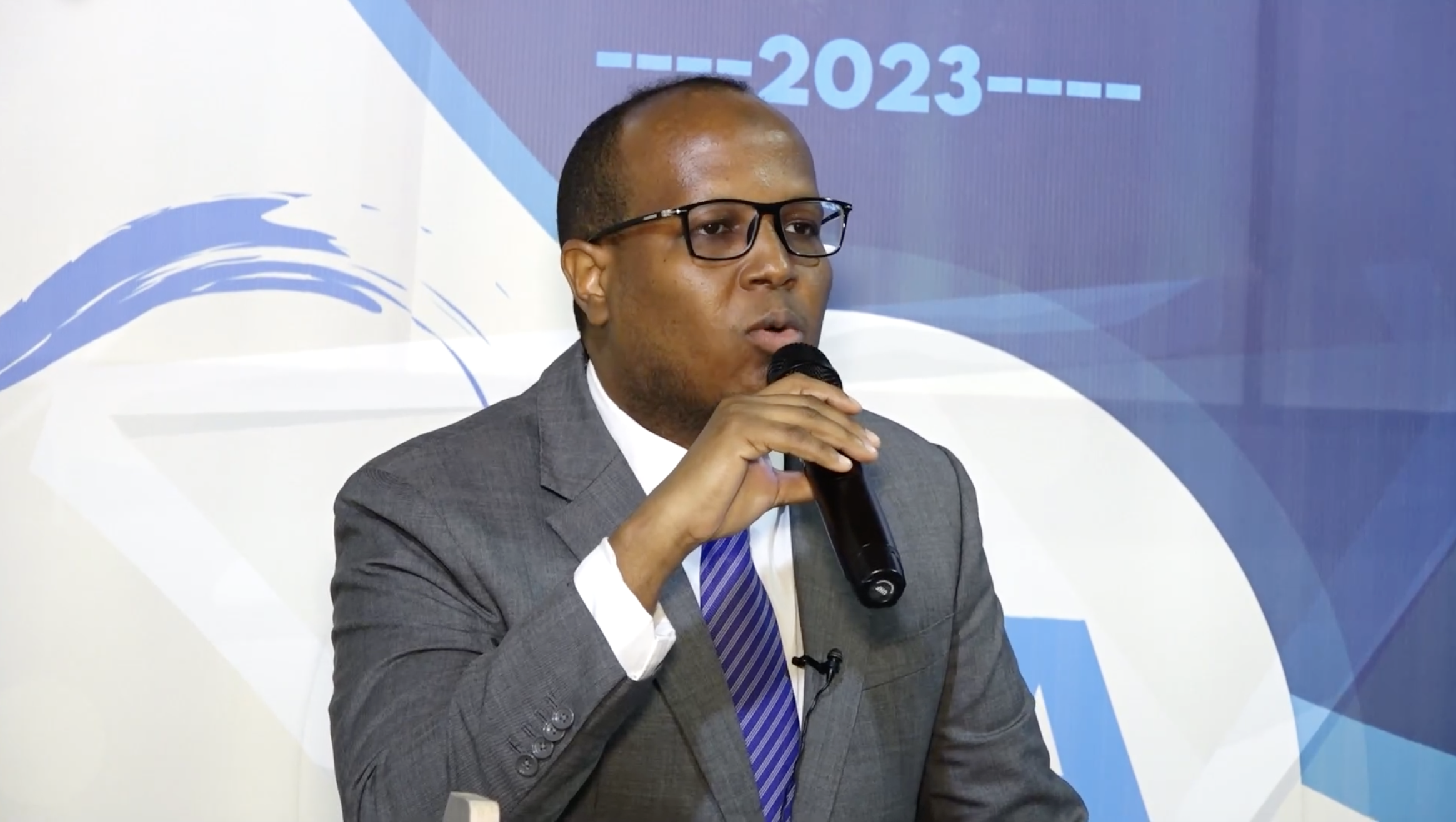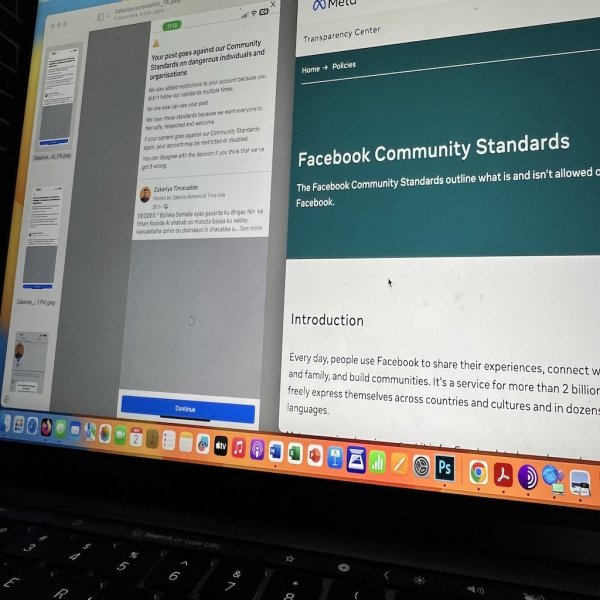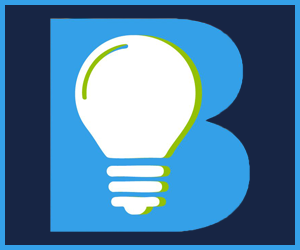
2023: Misuse of Facebook Community Standards and cyberattacks is how Somalia suppressed critical voices
|
31 December 2023 23:17

MOGADISHU (HORN OBSERVER) – The manipulation of Facebook Community Standards and the use of DDoS attacks have emerged as a concerning tool employed by Somalia's National Communication Authority (NCA) in collaboration with the national intelligence (NISA) to suppress critical voices among journalists and independent content creators.

Mustafa Yasin, the director of NCA, openly acknowledged his involvement in what he referred to as ‘cybersecurity measures in 2023,’ raising alarms about the misuse of online platforms for censorship.
Journalists and media stations critical of the Hassan Sheikh Mohamud’s government have faced widespread censorship through Facebook, experiencing warnings of page restrictions, suspension or content removal, often branded as "dangerous organizations and individuals” or "content that goes against community standards.”
Exiled journalists, Mohamud Carab and Zakriye Timacadde, encountered page suspensions after exposing human rights violations by NISA. Carab’s interview, which highlighted abuses against Mogadishu prisoners, triggered a Meta (Facebook’s parent company) warning and subsequent removal, only reinstated upon appeal.
The Secretary-General of the Somali Journalists Syndicate (SJS), Abdalle Mumin, a vocal critic of NISA’s human rights violations, also faced content removal and reporting, suggesting collaboration between NCA and NISA.
Mumin emphasized the need for Facebook to reconsider its affiliations with entities stifling free speech.
"It is disheartening to witness the collaboration between NCA in Somalia and national intelligence to suppress critical voices, including journalists. Facebook should take cognizance of this situation, which not only violates freedom of expression but also breaches Meta’s own policies towards promoting free speech. They should carefully consider its collaborations with these entities,” Mumin remarked.

The situation escalated when NISA detained Ali Hoshow, the Director of Communication and Technology at the Ministry of Foreign Affairs of Somalia, for refusing to target Facebook pages associated with journalists and opposition figures. NISA’s plan, later backed by NCA, involved hacking and takedown of profiles and pages, affecting 10 politicians and a dozen of journalists.
Diaspora-based journalist Munasar Mohamed faced content restrictions after exposing officials selling stolen food aid, highlighting a pattern of suppression. Other journalists and media outlets, including Abdirahman Nuur Abukar, Mohamed Bashir, Khalid Foodhaadhi, Risaala TV, and Radio Risaala, reported targeted content restrictions to avoid criticism of authorities.
The core issue lies in the manipulation of Facebook Community Standards by Somali authorities, exploiting Facebook’s machine-generated moderation system, leading to errors and unwarranted restrictions.
DDoS Attacks
A concerning pattern involves the utilization of DDoS [Distributed Denial-of-Service] attacks targeting media institutions. In August, the SJS website went offline due to an extensive DDoS attack flooding over 20,000 unique IP addresses. With the assistance of Qurium, a Europe-based non-profit organization, the website was successfully restored. Similar attacks were directed at HornObserver.com and Kaabtv.com, both independent news media outlets in Somalia.
SJS posits that these coordinated DDoS attacks were financed by NCA and NISA to obstruct crucial media reporting.
A forensic investigation conducted by Qurium traced the origin of the attack to U.S-based companies.
Tord Lundstrom, Qurium’s technical director, told Reuters that cybercriminals favor Wyoming as it allows them to camouflage their internet traffic as originating from within the United States.
This deceptive tactic proves valuable for hackers aiming to circumvent digital defenses that typically flag or block web traffic from less trusted locations, such as Russia or Iran.
On Sunday, the director of NCA, Mustafa Yasin mentioned his agency’s increased efforts to conduct "cybersecurity for the government” during a function in Mogadishu, raising questions about the nature of these initiatives.
While the Deputy of Minister of Information, Abdirahman Yusuf Al-Adaala had previously indicated an agreement with Facebook to act against "wrongdoers,” synonymous with "critical voices,” Facebook has yet to respond to queries regarding its involvement with NCA, NISA, and the Ministry of Information in Somalia.
Leave a comment
- Popular
- Rated
- Commented
04/11/2021 - 11:05:02
28/05/2024 - 15:44:10
02/12/2021 - 11:34:53
01/03/2021 - 09:00:37
Opinions
18/05/2025 - 16:26:37
15/05/2025 - 20:16:04
Politics
05/06/2025 - 13:42:50
Terror Watch
07/06/2025 - 21:36:45
Press Releases
05/06/2025 - 12:21:21
02/06/2025 - 21:29:33
 0
0 




































2023: Misuse of Facebook Community Standards and cyberattacks is how Somalia suppressed critical voices
MOGADISHU (HORN OBSERVER) – The manipulation of Facebook Community Standards and the use of DDoS attacks have emerged as a concerning tool employed by Somalia's National Communication Authority (NCA) in collaboration with the national inte